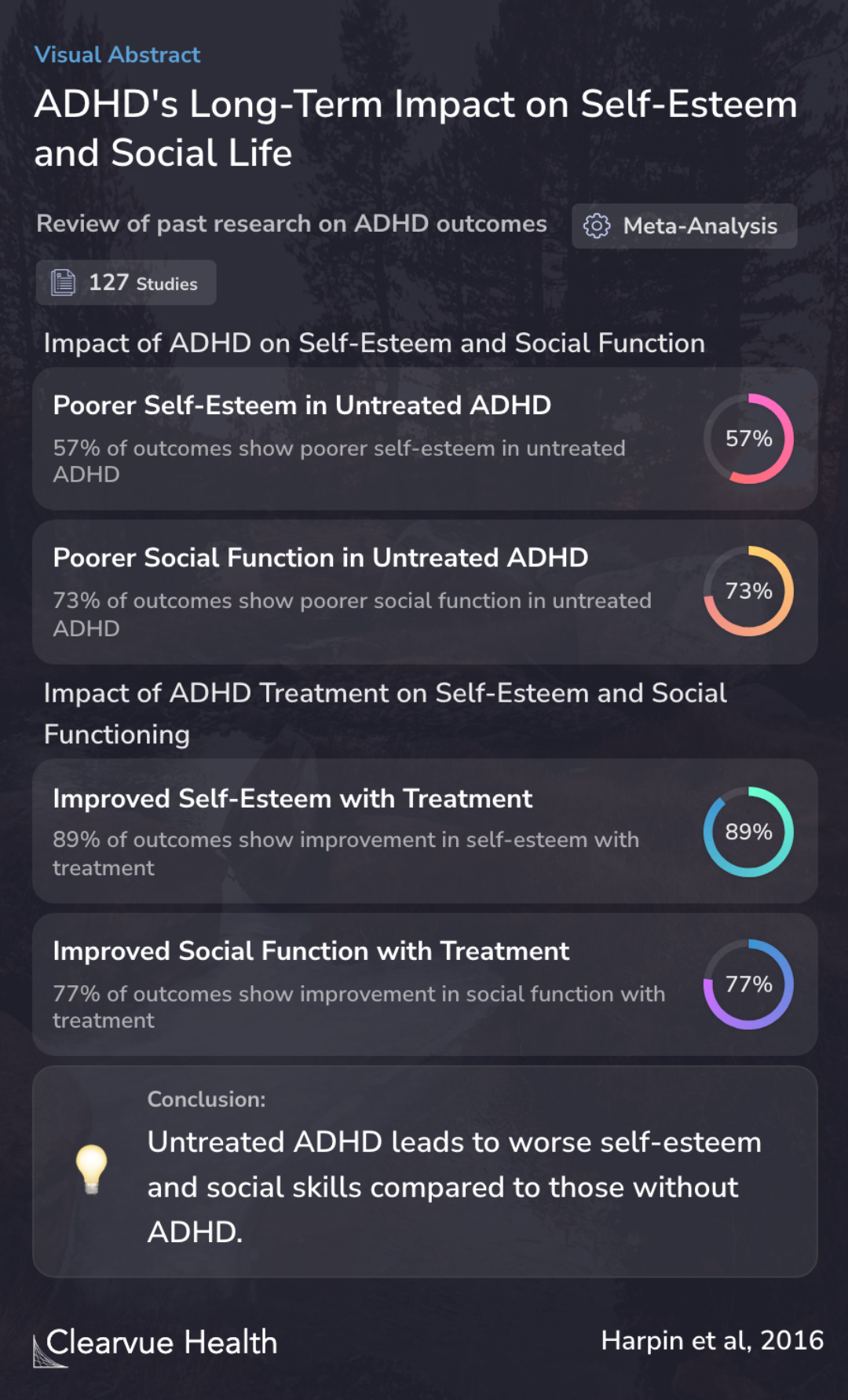Long-Term Outcomes of ADHD: A Systematic Review of Self-Esteem and Social Function
ADHD's Long-Term Impact on Self-Esteem and Social Life
Harpin V, Mazzone L, Raynaud JP, Kahle J, Hodgkins P

Objectives
The study set out to explore how ADHD, when not treated, affects a person's self-worth and ability to interact with others over time. This was looked at through the lens of childhood, teenage years, and adulthood.
To compare the long-term self-esteem and social function outcomes of individuals with untreated and treated ADHD across childhood, adolescence, and adulthood.
Methods
In order to gather insights, a thorough review of existing research was conducted. This involved looking through 12 different databases to find studies published from January 1980 up until December 2011. The focus was on studies that shared insights on the long-term impacts of ADHD on an individual's self-esteem and social abilities, going beyond just the immediate symptoms.
A systematic search of 12 databases was performed to identify peer-reviewed, primary research articles, published January 1980 to December 2011, reporting long-term self-esteem and/or social function outcomes (≥2 years; life consequences distinct from symptoms) of individuals with untrea...
Results
The research uncovered that, in many cases, individuals with ADHD that hadn't received treatment experienced more challenges with self-esteem and social interactions compared to those without ADHD. Specifically, 57% of outcomes related to self-esteem and 73% related to social function were less favorable for those with untreated ADHD.
On a brighter note, the majority of those who received treatment, whether it was through medication, other non-medication methods, or a mix of treatments, saw improvements in both self-esteem and social abilities.
Overall, 127 studies reported 150 outcomes. Most outcomes were poorer in individuals with untreated ADHD versus non-ADHD controls (57% [13/23] for self-esteem; 73% [52/71] for social function). A beneficial response to treatment (pharmacological, nonpharmacological, and multimodal treatm...
Conclusions
The findings indicate a clear link between untreated ADHD and more difficult long-term outcomes in terms of self-esteem and the ability to interact socially. However, those who received treatment for their ADHD tended to do better in these areas. Despite these findings, the paper suggests that more research is needed to fully understand the long-term impacts of ADHD and its treatment.
Untreated ADHD was associated with poorer long-term self-esteem and social function outcomes compared with non-ADHD controls. Treatment for ADHD was associated with improvement in outcomes; however, further long-term outcome studies are needed.
Key Takeaways
Context
Other studies have also shed light on how ADHD affects one's social skills and sense of self-worth. For instance, a study from 2020 revealed that different types of ADHD can impact thinking skills and self-esteem in various ways among children. Some children with certain types of ADHD might have stronger abilities in some areas than others, suggesting the need for tailored support.
Further research into adults with ADHD has shown that they might face more challenges with empathy and maintaining relationships. A study from 2018 found that adults with ADHD might have lower emotional empathy, which can affect the quality of their social interactions and relationships, even though their social skills and cognitive empathy might be similar to those without ADHD.